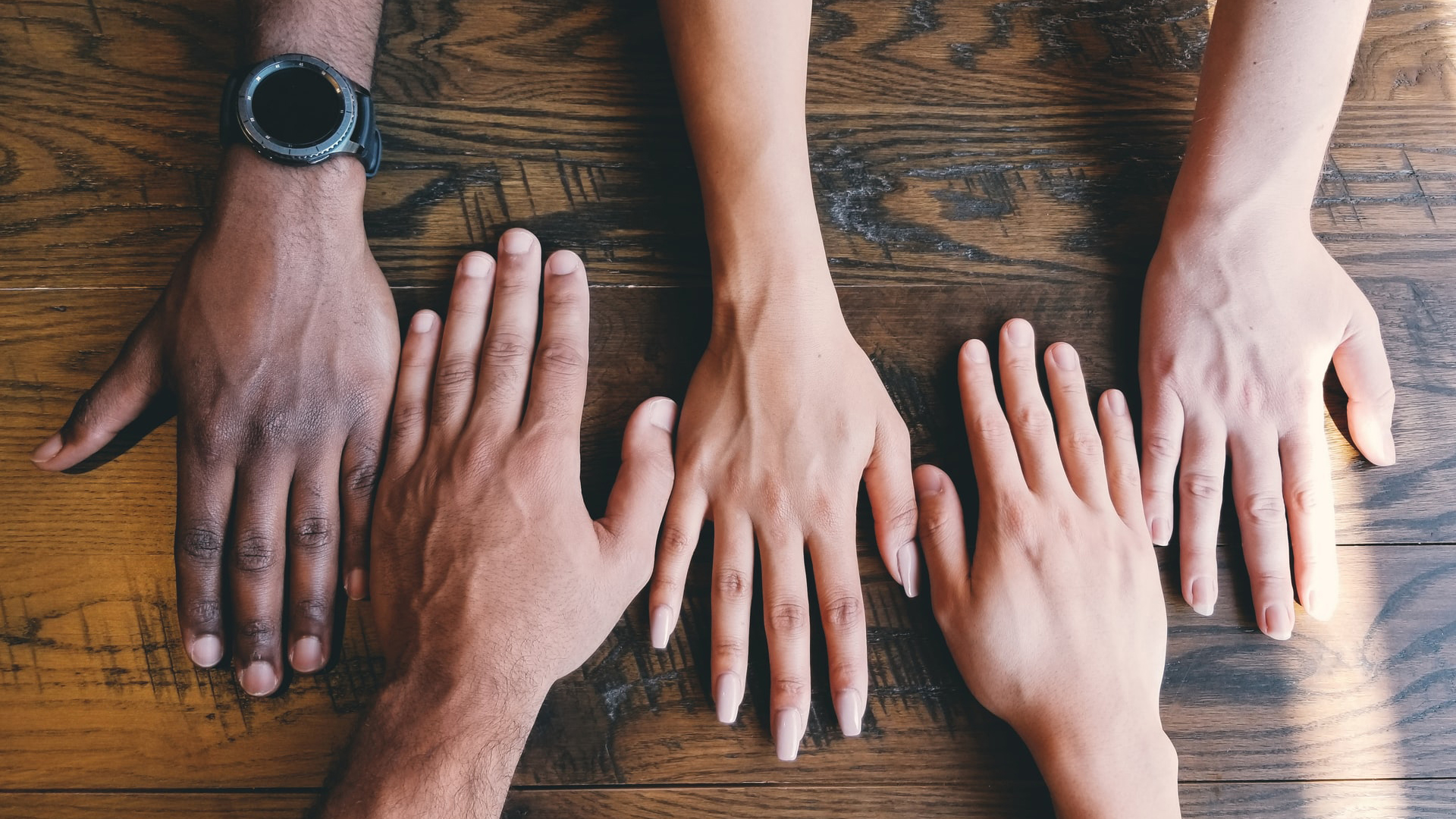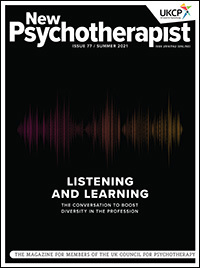
Claiming my voice as a BAME therapist and ‘extending my hand to the white Other’
 The summer issue of the New Psychotherapist looks at diversity and how a more diverse profession will help to increase access to psychotherapy for minority communities. We received a tremendous response to our call for members to give a snapshot of their practice and discuss what inclusion means to them and not all could be included in the magazine.
The summer issue of the New Psychotherapist looks at diversity and how a more diverse profession will help to increase access to psychotherapy for minority communities. We received a tremendous response to our call for members to give a snapshot of their practice and discuss what inclusion means to them and not all could be included in the magazine.
Here, psychosynthesis psychotherapist Humera Quddoos explores her reaction to our call and the importance of claiming her voice on her own terms.
I think of myself as a rank and file ‘ordinary’ member of UKCP. I don’t write, pursue research, publicly speak or train others in the profession. This article isn’t an academic discussion or theoretical overview, it isn’t an account de-personalised from the writer. I’m not striving for generality or objectivity. This is my account, my lived experience of what occurred in me. It’s what psychotherapy holds as integral to its core, the honouring of the individuals experience and voice.
However, when I saw the publicity to hear from BAME therapists to come forward to ‘share’ their experience in the profession something in me somewhere, felt ‘invited’.
With this in mind, I emailed the editor and in the New Year the editorial guidelines arrived. As I read those guidelines my entire body responded. My chest tightened, my breathing became shallow, my heart sank. Despondency flooded in and behind that something new for me, something that I now realise I had very effectively split off and repressed, anger.
It felt like rocket fuel, explosive, hot, dangerous. There was no part of me that felt I could address or even wanted to answer any of those questions. From those questions I also immediately knew, on a gut level that the questioner, the editor, who sent me the email, was white.
Questions such as:
- What barriers do people of colour face when it comes to accessing mental health care more generally?
- Why do people of colour experience disproportionate levels of poor mental health in this country and what can be done about it?
- What solutions do you believe should be implemented to make psychotherapy training and education more inclusive for people of colour?
My first instinct was avoidance, I just wouldn’t write anything. This wasn’t for me, I was mistaken. Then I thought, even if I’m not going to write anything, surely I should feedback to this editor. Let them know, how much these questions were steeped in white establishment privilege, how this unspoken, unchallenged, misguided white liberalism to ‘understand’ had only further served to reduce me to an ‘object’, to be questioned by the terms the Other with power chose; ‘tell us how it is for you’, ‘educate us’, ‘look we’re interested, we’re asking’, ‘we’re giving you space here’, ‘granting you permission’.
My ‘being’ placed yet again into the unasked for and unwanted role as spokesperson for my race, my tribe, nominated into that position by the questioner.
My race is either invisible or my only identifying feature, both positions reducing me to a cipher, shrinking the complexity of my humanity. The very opposite of the psychotherapeutic effort to understand deeply, to invite honest sharing, to mirror and meet the other in the ground of their being, as they define it.
As I talked to her, in an arranged phone call, pointing these things out, flushed, forceful, emotional, something inside me broke open into awareness, my own collusion with white privilege and white fragility. The internalised whitewashing of my psyche so that I could have benign inclusion in the therapy tribe.
That awareness has been both liberating and painful. For now, I am no longer cut off from my own repression of the wounds of systemic racism. When I see my white colleagues that graduated with me, moving ahead as trainers, supervisors, when I see the ways in which I have become small to protect myself. When I ache to see my reflection, to be met, and there is only silence or absence.
When I have struggled financially to access therapy training, no parents or middle class partner to support or fund me. When for years I didn’t even join the UKCP, even though my training entitled me to membership, I had internalised and devalued my own journey.
It has been very hard to step forward, to claim a voice on my own terms. As I write this a part of me wants to stay hidden to be anonymised, not even put my name to this. I question myself, and lack confidence that sharing in this way, through ‘experience’, is somehow not valid. Then I think again, with my new awareness, I couldn’t have born with that invalidation that is something that has been externally drip fed into my Psyche so powerfully that I have adopted it as mine.
In waking up to claim my own voice I offer out and extend my hand to the white Other, to also wake up and step forward. Let us enter the ring of relationship together, to engage courageously with our individual differences. In naming our collective histories, we will at times want to turn away in denial, or act out in defence. Relationship by its very nature is painful work, not for the faint hearted.
To become more equitable, just and fair, I have to raise my voice to claim and you will have to open your heart fearlessly to count the things that you have but I don’t. You may even consider how you might share or give away those things, so that those who have gone without can have some too.
In an awakened world, we are not striving to be made the ‘same’ but to be met wholly, truthfully, in our shame and our grace. For me that meeting is an act of love, it’s what I strive to offer myself, my clients and my courageous white editor who was willing to say ‘write what you need to’.
And so I have.
Share
Like most websites, we use cookies. If this is okay with you, please close this message or read more about your options.


